
The Voice That Starts Christmas: Gifts for Bing Crosby Fans
Delight Bing Crosby fans with gifts that capture the essence of Christmas. Discover perfect presents inspired by nostalgia.

You’ve heard the Southern style. You’ve sung the choruses. And you’ve definitely air-guitared your way through Fortunate Son at least once. But have you ever stopped to wonder — what the hell does Creedence Clearwater Revival actually mean?
It’s a mouthful, sure, but like everything great in rock ‘n’ roll, there’s a story behind it — one that spans bar bands, beer commercials, and a good old-fashioned musical rebirth.
Before they were Creedence Clearwater Revival, the band was a trio of high schoolers in El Cerrito, California — John Fogerty, Doug “Cosmo” Clifford, and Stu Cook. They went by the name The Blue Velvets and played mostly instrumentals, heavily influenced by early rock, R&B, and surf music.
Eventually, Tom Fogerty, John’s older brother, joined the band as a frontman. They picked up some regional attention and, in 1964, landed a deal with Fantasy Records. That’s where things took a weird turn.
The label’s co-owner decided to change the band’s name — without asking them. Suddenly, The Blue Velvets were now The Golliwogs, a name borrowed from a racially charged children’s book character that hasn’t aged well by any standard.
The band hated it. They didn’t choose it, didn’t identify with it, and by the mid-’60s, they were done playing dress-up for the suits. They wanted their music — and their image — to mean something.
So when their Fantasy contract came up for renewal in 1967, the band demanded a clean slate. New direction. New freedom. New name.
The story of the name isn’t some lightning-strikes moment of brilliance. It’s actually a mash-up of three unrelated ideas that somehow came together just right.
The “Creedence” part comes from a real guy — Credence Newball, a friend of Tom Fogerty’s who worked with him at a local TV station. The band liked his name but added an extra “e” to give it a cooler, almost biblical twist. The word creed sits inside it — suggesting truth, belief, or conviction — which fit perfectly with their no-frills, blue-collar vibe.
The “Clearwater” part was lifted from — of all places — a TV beer commercial. Olympia Beer ran an ad touting the purity of its brewing water, using the phrase “clear water” as a badge of quality. John Fogerty liked the image. It felt natural, grounded, and elemental. Add that to the band’s growing fascination with Southern blues and bayou swamp rock, and it just clicked.
And finally, the “Revival” part was symbolic. This was their rebirth — a new phase of the band after years of being told what to play, what to wear, and what to call themselves. It was time for a creative awakening, and they wanted to say that loud and proud.
Put it together and you get:
Creedence. Clearwater. Revival.
It sounds like a gospel group. Or an old-timey tent preacher’s slogan. Or some forgotten American folk legend.
And that’s exactly what made it stick.
For a group of California kids, CCR sounded like they came straight out of a Louisiana juke joint. Their music was swampy, countrified, and rooted in the kind of storytelling you’d expect from Southern bluesmen twice their age.
And while they had no direct ties to the South, their image was drenched in Americana — bayous, riverboats, dusty highways, and working-class struggle.
Their name helped sell that myth.
It wasn’t flashy. It wasn’t trying too hard. It just fit.
It sounded like history.
It sounded like something passed down through generations.
And it gave songs like Born on the Bayou, Green River, and Proud Mary the perfect place to live.
What makes Creedence Clearwater Revival such a great band name isn’t just the way it rolls off the tongue. It’s the way it carries meaning.
“Creedence” represents integrity and roots.
“Clearwater” evokes nature, simplicity, and flow.
“Revival” is about rebirth, soul, and timelessness.
Together, they created a name that sounds more like a mission than a moniker. And that mission? To bring real American rock music back to the people.
No glitter. No gimmicks. Just sweat, soul, and a whole lot of guitar fuzz.
Creedence Clearwater Revival may have only had a few short years at the top before breaking up in 1972, but their impact hasn’t faded. Their songs are still played everywhere from truck stops to blockbuster movies. And their name — strange as it may be — still carries weight.
Because in the end, it wasn’t just a band name. It was a banner, a sound and indeed a revival.
And when that guitar kicks in on Born on the Bayou, you know exactly who it is — no need to say it twice.
Peace Out
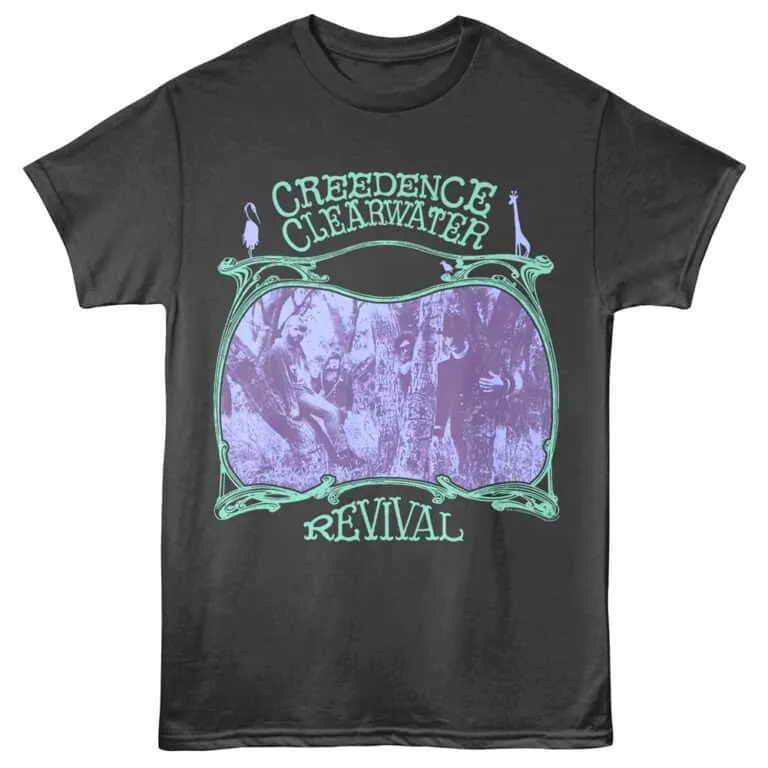
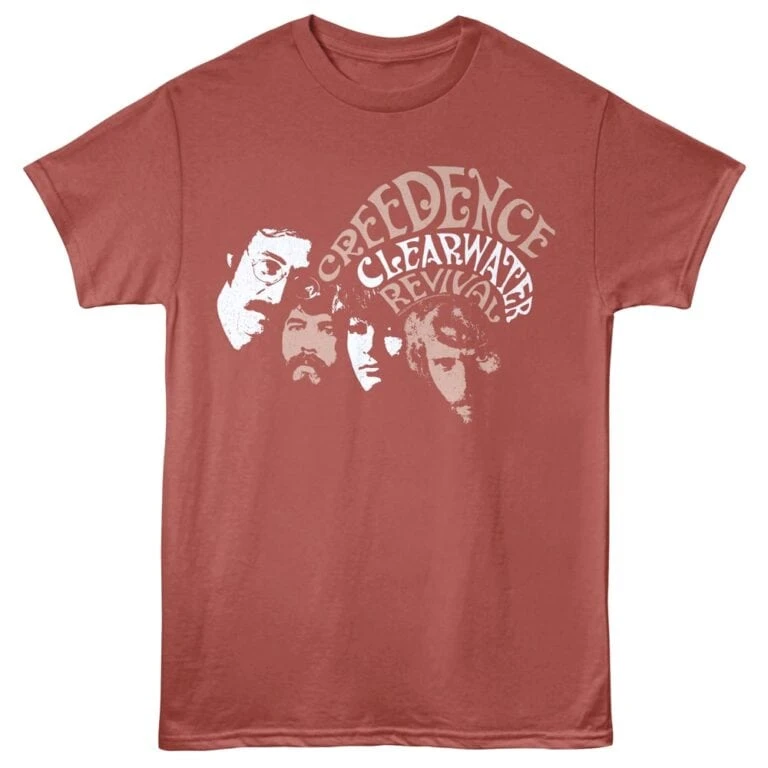
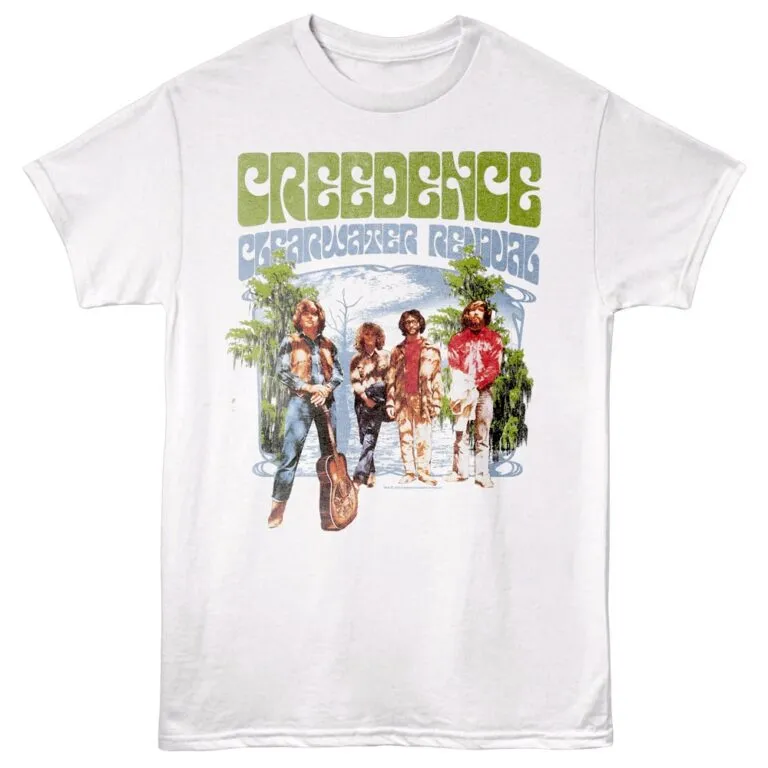
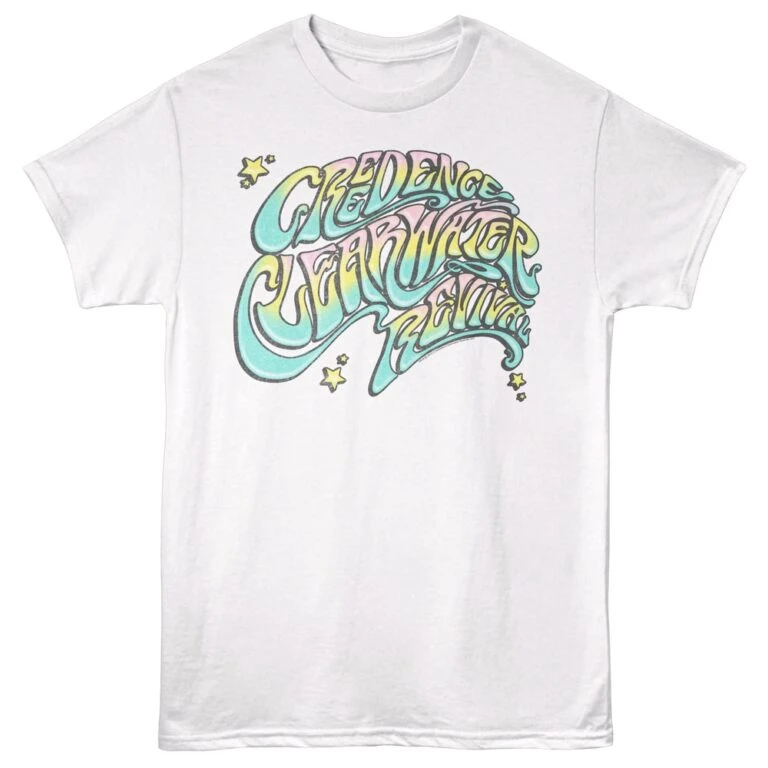
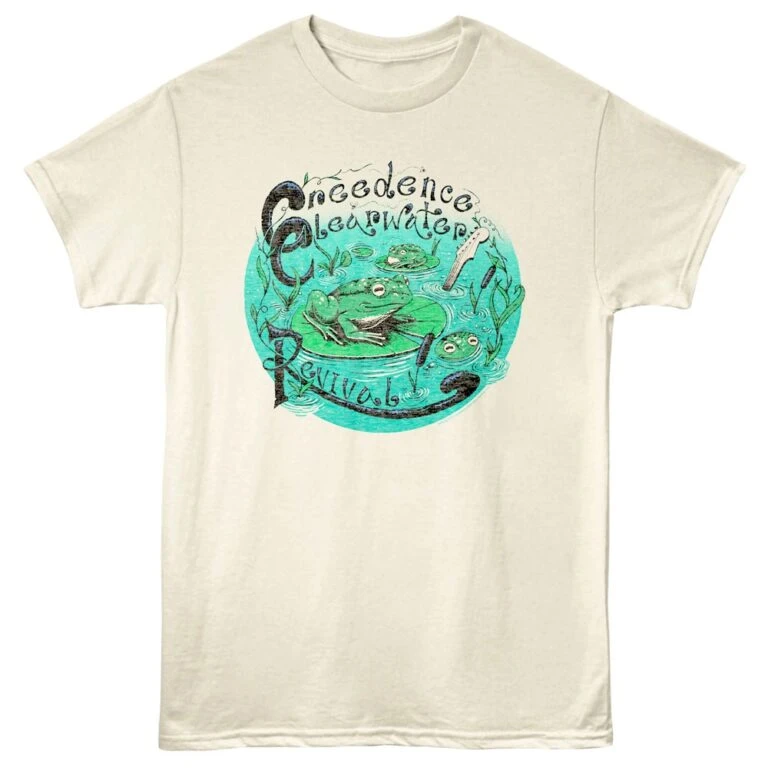


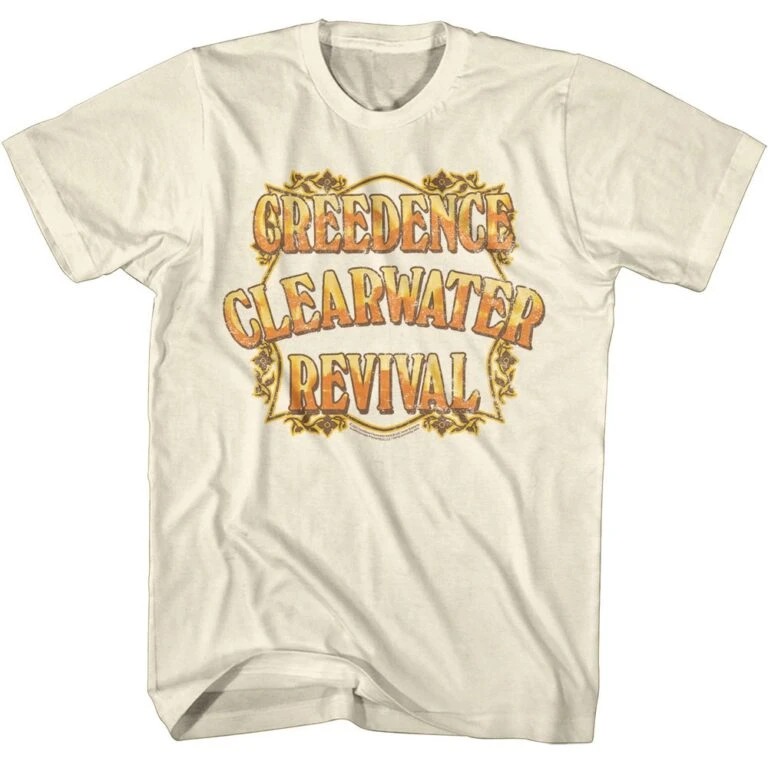
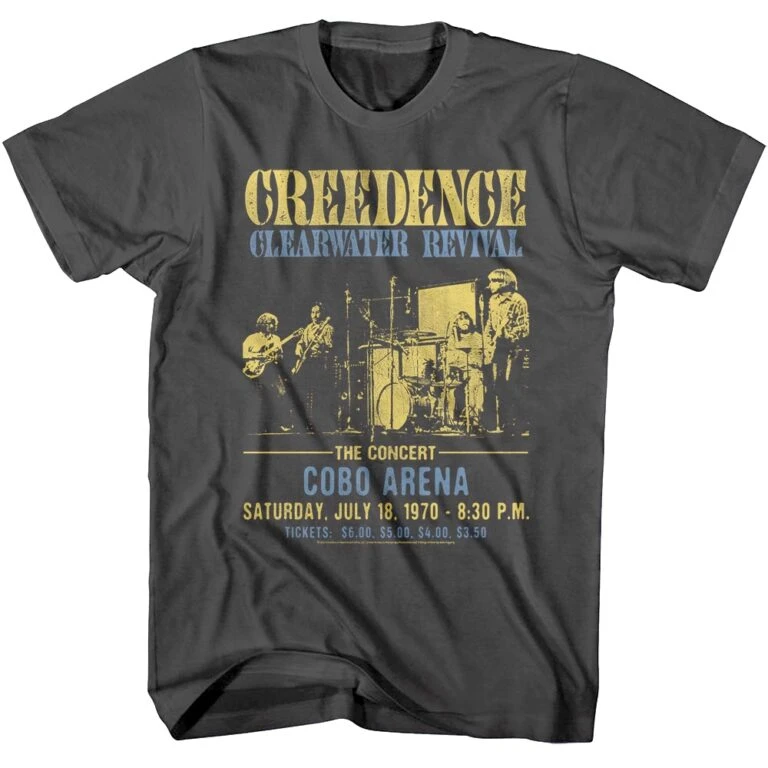





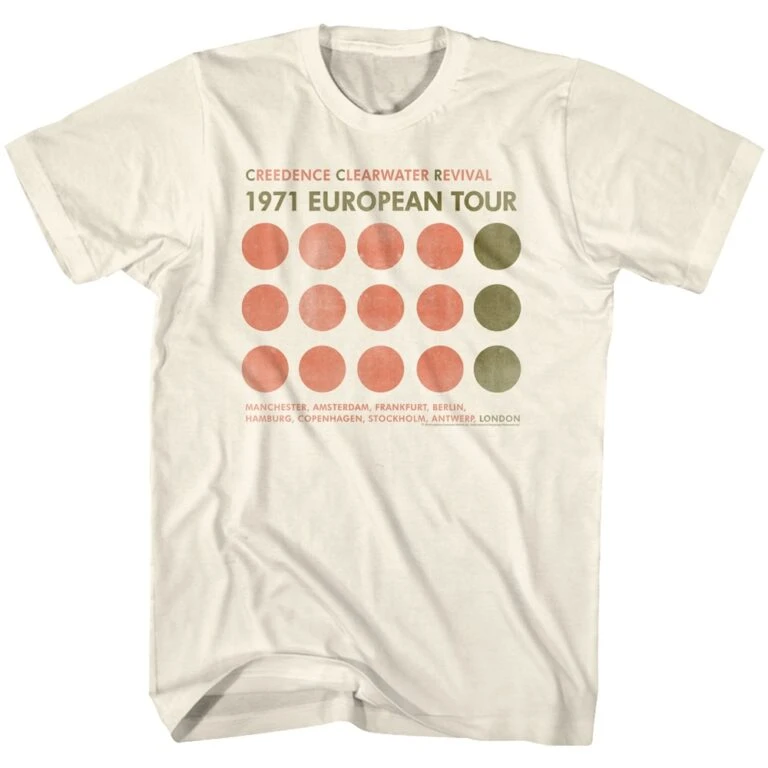

I like to write my thoughts often, some people have told me I'm funny and relatable, I will let you decide.
I give away t-shirts often, usually to people I like, or people that post photos or to just generally cool peeps! So if you like a message, write me back, I will respond
Stay Cool
Sam
Hey dude, thanks for joining my TeeMail list. I promise I will make it worth your while. And hey, if I don't you can just unsubscribe :D
Keep Rockin
Sam

Delight Bing Crosby fans with gifts that capture the essence of Christmas. Discover perfect presents inspired by nostalgia.

Explore unique gifts for fans of Santa Claus Is Coming to Town. Celebrate nostalgia with perfect holiday presents.

Explore the best gifts for the Trans-Siberian Orchestra fan who rocks classical music and makes holidays unforgettable.